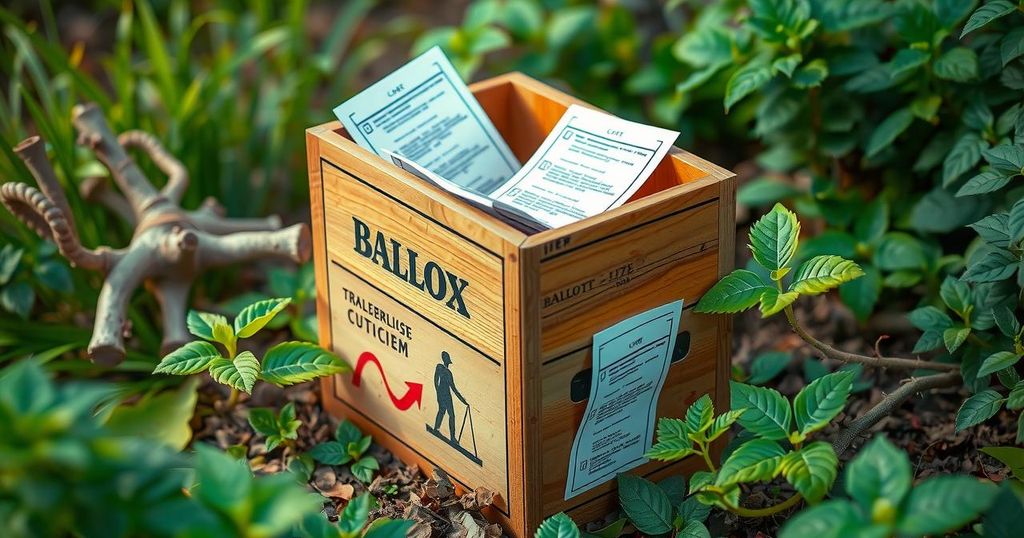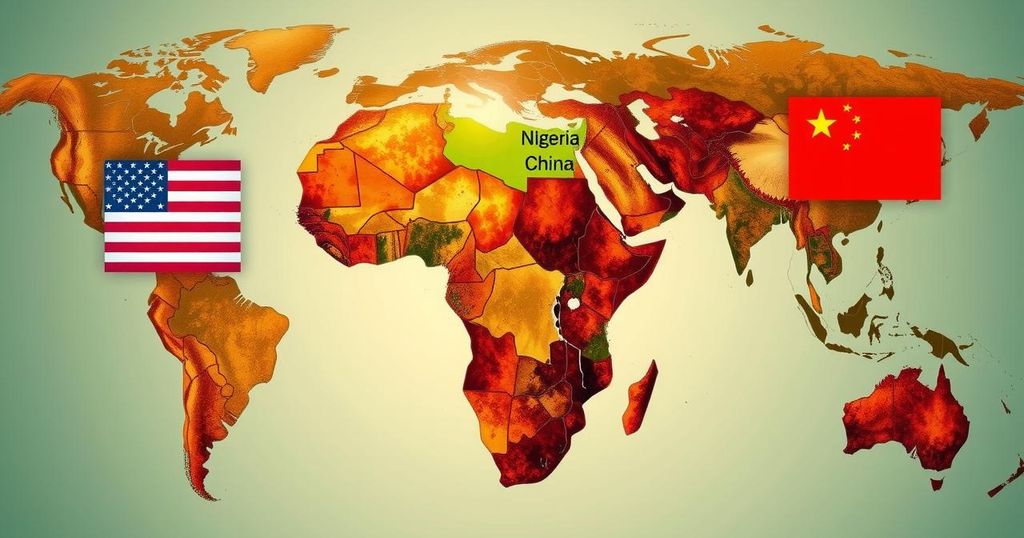Ecuador is set to hold a presidential runoff election between incumbent Daniel Noboa and leftist challenger Luisa Gonzalez. Noboa’s hardline approach against cartel violence contrasts with Gonzalez’s support for ordinary citizens. Polls indicate a tight race, with significant implications for the future governance and relations with the United States, making this election crucial for Ecuador.
Ecuador is poised for a closely contested presidential runoff election where incumbent Daniel Noboa faces off against leftist challenger Luisa Gonzalez. Noboa, age 37, narrowly won the initial round in February but did not achieve enough support to avoid further competition. Gonzalez, seeking to be Ecuador’s first female president, has emerged as a strong contender amid rising public discontent over escalating cartel violence that has dramatically altered the nation’s safety landscape, making it one of the most perilous regions in Latin America.
In response to the growing violence, Noboa declared a 60-day state of emergency in Quito and surrounding provinces, highlighting the nation’s precarious situation. Since the beginning of the year, Ecuador has experienced an alarming increase in homicides connected to drug cartels competing for control over lucrative cocaine trafficking routes, averaging a murder every hour. Noboa has relied on hardline security measures, mobilizing military forces, capturing drug lords, and coordinating with the U.S. for special operations while personally participating in security initiatives.
Conversely, Gonzalez, age 47 and a single mother, positions herself as a representative for ordinary Ecuadorians, rallying support from the economically marginalized. The sharp rise in violence has negatively impacted both investment and tourism, resulting in increased poverty, which now affects 28 percent of the country’s population. Local sentiment reflects deep concern, with citizens like cafeteria manager Marcelo Salgado expressing hopes for a restoration of peace.
As polls suggest a statistical deadlock in the upcoming election, the pathways before Ecuador differ significantly based on the outcome. A victory for Noboa would likely continue the existing stringent security policies and bolster relations with the U.S., whereas a Gonzalez victory may pivot Ecuador to the left, potentially straining ties with Washington. Gonzalez’s affiliation with former president Rafael Correa, currently in exile, adds an additional layer of complexity, as Correa has historically clashed with the U.S.
The first election round revealed a slim margin between the candidates, hinting at an unpredictable voter turnout landscape in the runoff. Following voter mobilization and outreach efforts, Gonzalez aims to appeal particularly to women, proposing financial assistance plans for single mothers. Meanwhile, Noboa counters this by presenting himself as a fresh alternative for change, distancing himself from established political figures. Analysts have raised concerns that an exceedingly close result could trigger allegations of electoral fraud, potentially undermining the standing of the resulting government and complicating its governance.
The impending presidential runoff in Ecuador represents a pivotal moment for the nation as voters decide between the security-focused policies of incumbent Daniel Noboa and the progressive platform of challenger Luisa Gonzalez. With critical issues dominating the political landscape, including rampant violence and economic instability, the choice made by Ecuadorians will significantly shape the country’s approach to governance and international relations. The close nature of this election raises concerns about the legitimacy of the outcome and the challenges that may confront the next administration.
Original Source: www.bssnews.net




